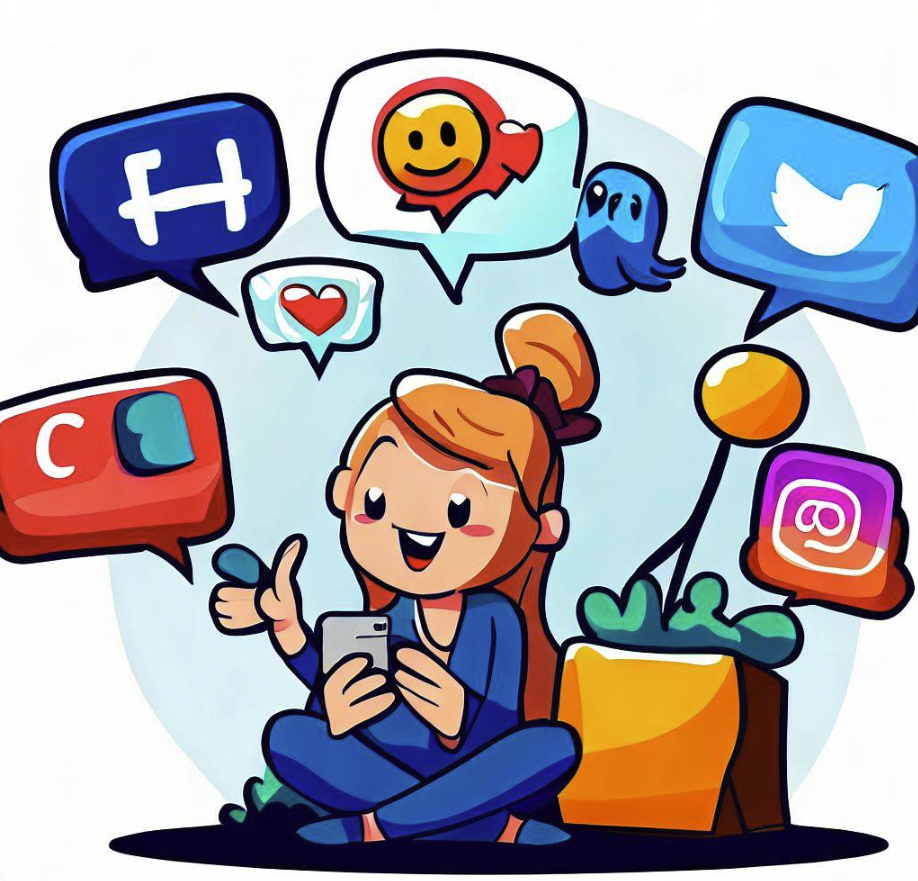YouTube has become an integral part of our daily lives, with millions of videos being uploaded and watched every day.
But is YouTube considered a social media platform?
Below we look into the characteristics of social media and explore whether YouTube fits the definition.
By examining its features, user interactions, and impact on society, we can determine whether YouTube can be classified as social media.
Table of Contents
What is Social Media?
Before we dive into the question of whether YouTube is social media, let’s first define what social media actually means.
Social media refers to online platforms that allow users to create and share content, as well as engage in social interactions with others.
These interactions can include commenting, liking, sharing, and following other users’ content.
Social media platforms typically have the following characteristics:
- User-generated content: Users are the primary creators of content on social media platforms.
- Public or semi-public profiles: Users have profiles that showcase their content and allow others to interact with them.
- Interactions and engagement: Users can engage with each other’s content through comments, likes, shares, and follows.
- Networking and community building: Social media platforms facilitate the formation of communities and connections between users.
YouTube’s Features and Characteristics
Now that we have a clear understanding of what social media entails, let’s examine YouTube’s features and characteristics to determine whether it fits the definition.
User-generated Content
YouTube is primarily a platform for user-generated content. Anyone can create a YouTube channel and upload videos on a wide range of topics.
From vlogs to tutorials, music videos to documentaries, YouTube offers a diverse array of content created by individuals and organizations.
While some argue that YouTube also hosts professionally produced content, the majority of videos on the platform are created by regular users.
This aligns with the user-generated content characteristic of social media platforms.
Public Profiles
YouTube provides users with public profiles where they can showcase their uploaded videos, playlists, and other information.
These profiles allow users to establish an online presence and build a following.
Users can also customize their profiles to reflect their personal brand or identity.
Although YouTube profiles may not have the same level of personal information as profiles on other social media platforms like Facebook or Instagram, they still serve as a public representation of the user’s content and engagement on the platform.
Interactions and Engagement
One of the key aspects of social media is the ability for users to interact and engage with each other’s content.
YouTube offers various ways for users to engage with videos, such as liking, disliking, commenting, sharing, and subscribing to channels.
Comments on YouTube videos often spark discussions and conversations among users.
Creators can respond to comments, fostering a sense of community and interaction.
Users can also share videos on other social media platforms, further extending the reach and engagement of the content.
Networking and Community Building
YouTube facilitates networking and community building through features like subscriptions and recommendations.
Users can subscribe to channels they enjoy, allowing them to stay updated with new content from their favorite creators.
This creates a sense of community and connection between creators and their audience.
YouTube’s recommendation algorithm suggests videos based on a user’s viewing history and preferences.
This feature helps users discover new content and connect with like-minded individuals who share similar interests.
YouTube’s Impact on Society
YouTube’s influence extends beyond its features and characteristics.
The platform has had a significant impact on society, further blurring the line between traditional media and social media.
YouTube has become a powerful tool for content creators, allowing them to reach a global audience and build their own brands.
Many YouTubers have amassed millions of subscribers and have become influential figures in various fields, such as beauty, gaming, and education.
Moreover, YouTube has played a crucial role in democratizing media production and consumption.
It has given a voice to individuals who may not have had access to traditional media platforms.
This has led to the rise of citizen journalism, where ordinary people can report on events and share their perspectives with the world.
YouTube has also become a platform for social movements and activism.
It has been used to raise awareness about important issues, mobilize communities, and drive social change.
From the Arab Spring to the Black Lives Matter movement, YouTube has been a catalyst for social and political movements around the globe.
FAQs – Is YouTube Social Media? (Explained)
1. Is YouTube considered a social media platform?
Yes, YouTube is considered a social media platform due to its characteristics of user-generated content, public profiles, interactions and engagement, and networking and community building.
2. Can anyone create a YouTube channel?
Yes, anyone can create a YouTube channel and start uploading videos on the platform.
3. How do users engage with YouTube videos?
Users can engage with YouTube videos by liking, disliking, commenting, sharing, and subscribing to channels.
4. Does YouTube have a recommendation algorithm?
Yes, YouTube has a recommendation algorithm that suggests videos based on a user’s viewing history and preferences.
5. Can YouTube be used for activism?
Yes, YouTube has been used as a platform for activism, allowing individuals and communities to raise awareness about important issues and drive social change.
6. Are YouTube profiles public?
Yes, YouTube profiles are public and allow users to showcase their uploaded videos and engage with other users.
7. Can YouTube videos be shared on other social media platforms?
Yes, users can share YouTube videos on other social media platforms, extending the reach and engagement of the content.
8. Are YouTube creators influential figures?
Yes, many YouTube creators have amassed millions of subscribers and have become influential figures in various fields.
9. Does YouTube have an impact on society?
Yes, YouTube has had a significant impact on society by democratizing media production, giving a voice to individuals, and playing a role in social movements and activism.
10. Can YouTube be used for citizen journalism?
Yes, YouTube has been used as a platform for citizen journalism, allowing ordinary people to report on events and share their perspectives.
11. Is YouTube part of the traditional media landscape?
YouTube has blurred the line between traditional media and social media, with many content creators on the platform gaining influence and recognition.
12. Can YouTube be used for educational purposes?
Yes, YouTube is widely used for educational purposes, with many creators offering tutorials, lectures, and informative content.
13. Are YouTube comments a form of social interaction?
Yes, YouTube comments allow users to interact with each other, sparking discussions and conversations around the video content.
14. Can YouTube videos go viral?
Yes, YouTube videos can go viral, gaining millions of views and widespread attention within a short period of time.
15. Is YouTube a profitable platform for content creators?
Yes, YouTube offers monetization options for content creators, allowing them to earn revenue through ads, sponsorships, and other partnerships.
Summary – Is YouTube Social Media? (Explained)
In conclusion, YouTube exhibits many characteristics of social media platforms.
It allows users to create and share content, engage with each other through comments and likes, and build communities around shared interests.
YouTube’s impact on society further solidifies its position as a social media platform.
While YouTube may not fit the traditional mold of social media platforms like Facebook or Twitter, its unique features and influence make it an undeniable part of the social media landscape.
Whether you’re a content creator or a viewer, YouTube offers a platform for expression, connection, and community building.


